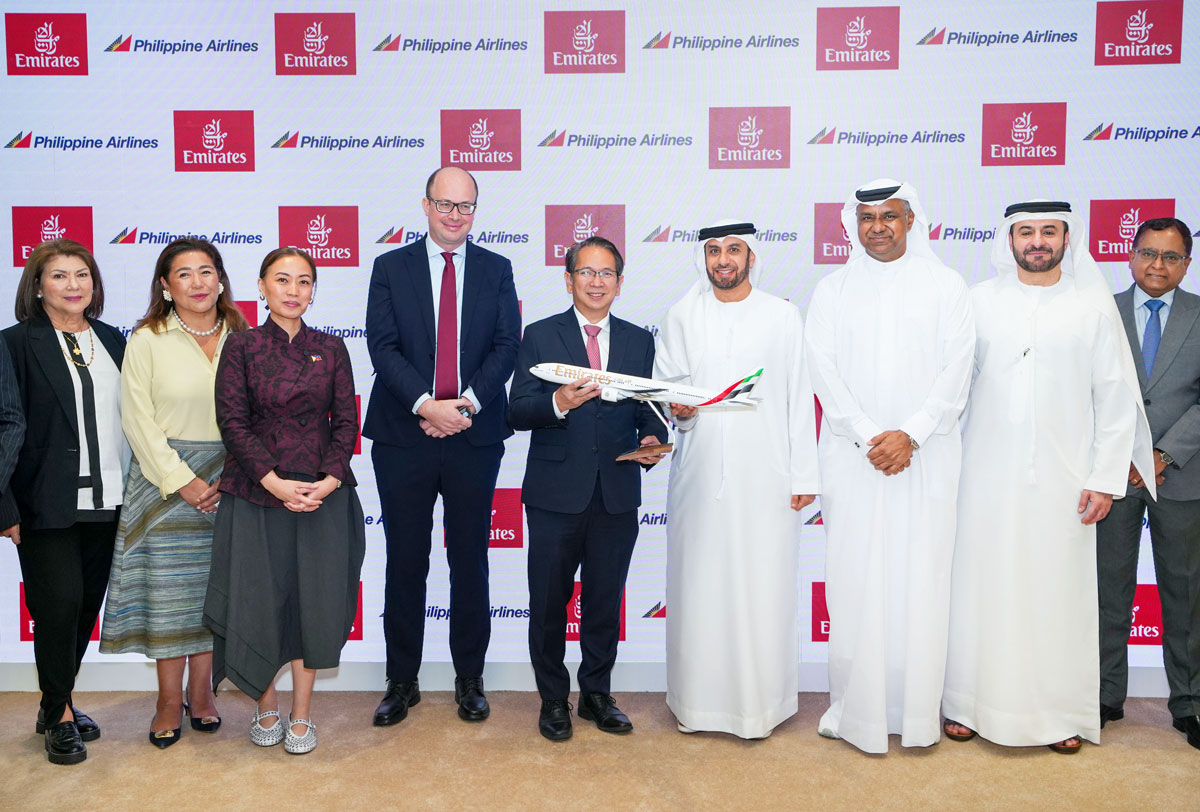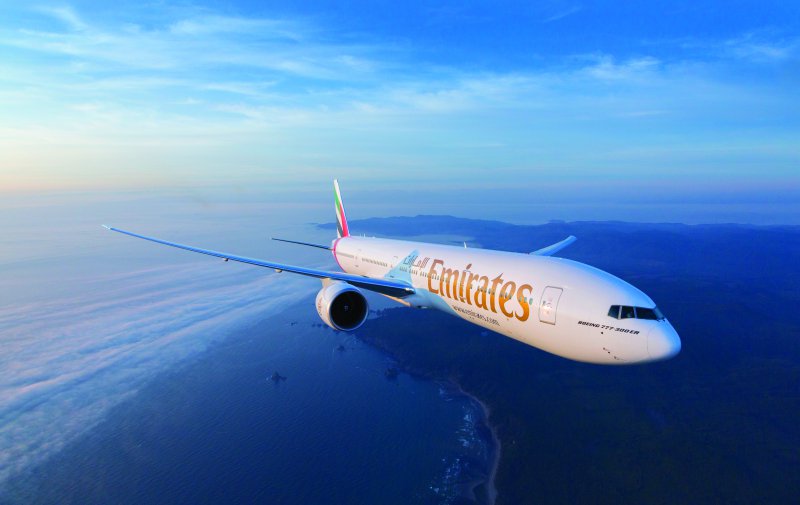
Emirates and Philippine Airlines (PAL) are advancing discussions to significantly enhance their collaboration across passenger and cargo operations, aiming to strengthen connectivity between the Middle East, Asia, and beyond. During the Arabian Travel Market 2025 in Dubai, both airlines outlined plans to explore a reciprocal code-sharing agreement on flights between the Philippines and Dubai, with potential extensions to select routes beyond their primary hubs.

This partnership would enable travelers to access new destinations through a single ticket, competitive fares, and unified baggage policies, streamlining journeys across their combined networks.
Passenger Connectivity and Service Enhancements
The proposed code-sharing agreement builds on their existing interline partnership, which since March 2023 has allowed seamless connections to 10 domestic Philippine destinations (e.g., Bacolod, Davao, Caticlan) via Cebu and Clark, and 9 international cities (including Amman, Cape Town, and Lisbon) via Dubai.

Emirates currently operates 28 weekly flights to the Philippines (Manila, Cebu, Clark), offering approximately 22,700 seats weekly, while PAL provides daily Dubai-Manila flights, facilitating access to Emirates’ global network of over 140 destinations. The expanded partnership would integrate scheduling improvements, unified booking platforms (via websites, apps, or travel agents), and enhanced customer experiences, including Emirates’ premium First-Class services on Manila routes.
Cargo and Operational Synergies
Beyond passenger services, the airlines are prioritizing cargo interline cooperation, aiming to optimize freight capacity and logistics efficiency. They plan to exchange expertise in ground handling, catering, and aircraft maintenance, alongside joint technical training programs to elevate service standards. These efforts align with growing demand for air cargo in the Asia-Middle East corridor, driven by e-commerce and trade growth.
Strategic Market Positioning
Emirates’ establishment of its first Southeast Asian Emirates World Store in Manila underscores its commitment to the Philippine market, catering to premium travelers and overseas Filipino workers. PAL, as Asia’s oldest airline, leverages its domestic network (32 Philippine destinations) and international reach (37 cities) to complement Emirates’ global footprint. The collaboration is poised to boost tourism and trade, particularly as post-pandemic travel demand surges, while setting a benchmark for airline partnerships in the region.

Future Outlook
Both carriers emphasize a shared vision for seamless travel experiences and operational efficiency. Industry analysts view this partnership as a strategic response to evolving traveler preferences, offering flexibility and connectivity in a competitive aviation landscape. With plans for joint promotional campaigns targeting trade stakeholders and media, Emirates and PAL aim to solidify their positions as key players in bridging Asia and the Middle East

.jpg)

.jpg)


.jpg)


.jpg)
.jpg)

.jpg)



.jpg)
.jpg)


.jpg)

.jpg)




.jpg)





.jpg)
.jpg)


.jpg)
 (1).jpg)
.jpg)
.jpg)
.jpg)

.jpg)

.jpg)
.jpg)
 (1).jpg)





